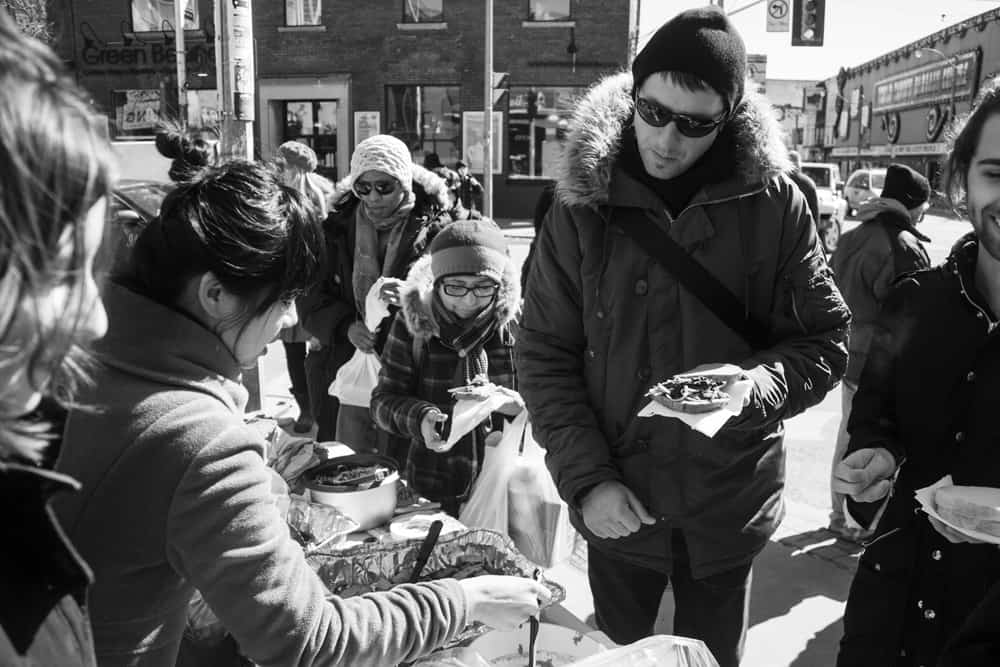It is a busy Sunday afternoon on Bloor Street with people and cars everywhere. Above the noise, one can hear the shouts, “Free food! Free food!” coming from a small table set up in front of the CIBC at the corner of Bloor Street West and Bathurst Street.
This table belongs to Food Not Bombs, an anti-capitalist, anti-waste, and anti-war collective run entirely by volunteers. Today, they have set up a table with flyers and food that’s ready to be served. It’s vegan and it’s free to whoever wants it. Today’s offerings include roasted vegetables, grated carrots, and cabbage sandwiches with a three bean spread accompanied by vegan pastries.
The Food Not Bombs movement was established in the 1980s in the United States. Now, its network includes about a thousand independent chapters worldwide.
The Varsity talked to Tasha Stansbury, one of the main organizers of the Toronto chapter in order to learn more about the movement. Stansbury is a second-year student at the University of Toronto majoring in equity studies with a double minor in anthropology and French. She revived the Toronto chapter last September and already has plans for the future of the organization. “I am aiming to have at least four or five chapters in the city in a couple of years,” she says.
The food is acquired either by donations or dumpster diving. Every Friday, the group gets together and embarks on a scheduled route in order to dive in the dumpsters of multiple grocery stores, markets, or pastry stores, collecting food that has been thrown out. A lot of the food acquired through dumpster diving has been found in its original package and has not expired. Rotten food is never picked up and the group thoroughly sanitizes the food before it is cooked and served.
There is obviously a lot of stigma associated to dumpster diving and yet, Stansbury assured me that most ”clients” are fine with it. The reaction is often more along the lines of curiosity than disgust: “The whole point is that so much food goes to waste and when we cook it and serve it for free, we prove that this food is not actually waste. People rethink ‘what does waste actually mean?’”
Food Not Bombs’ political actions do not limit themselves to opening people’s eyes to waste and serving free food. For example, they sometimes strategically serve their meals outside of fast food joints such as McDonald’s.
When Stansbury talks about Food Not Bombs, her excitement illuminates her from within. Not only does “her baby,” the Toronto chapter, reflect her passion for justice, but it also shows how much she loves to engage with the broader community.
When asked about the individuals who are involved with Food Not Bombs, Stansbury explains: “It’s like solidarity, not charity, meaning that we are different from a soup kitchen in that anyone can participate in the collection of food and that anyone can participate in the cooking of food.” Members come from a wide area of backgrounds, social classes and age group including middle class students, teachers, and homeless people. What unites them is the “desire to share and build communities, and do something that’s good and fun.”


